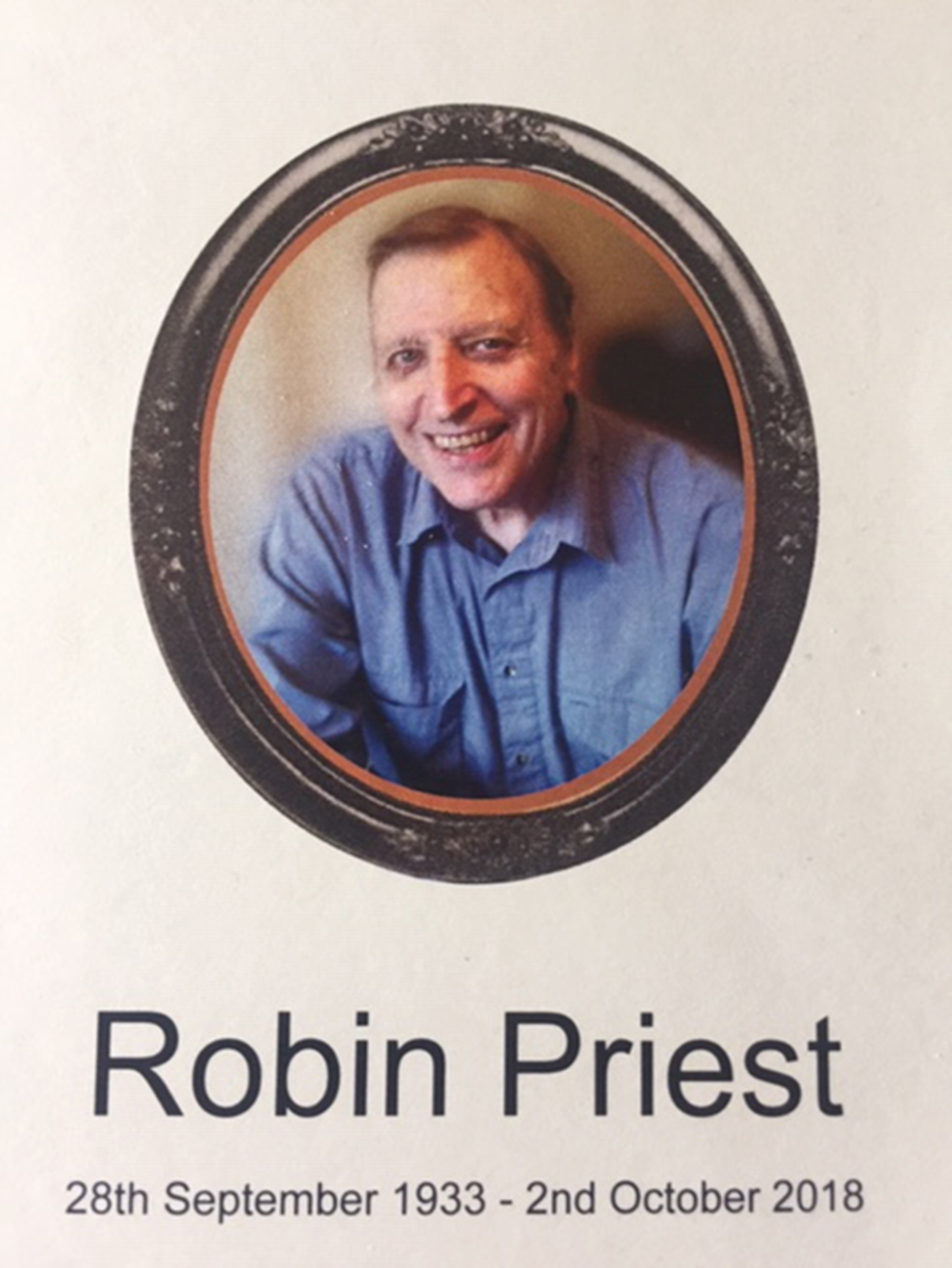Formerly Professor of Psychiatry, St Mary's Hospital, London, UK

Robin Priest, who died recently at the age of 85, was a leading academic who took an active part in the affairs of the Royal College of Psychiatrists. He was a member of the College Public Policy Committee (1972–1980), of Council (1982–1988) and of the Court of Electors (1983–1988). He served as Registrar from 1983 to 1988. He also served on various British Medical Association (BMA) committees, as well as committees of the University of London and the World Psychiatric Association. He was an effective and sensitive committee chair and, during the 1980s, in collaboration with the Royal College of General Practitioners, led the high-profile Defeat Depression campaign, designed to improve the recognition and further support of primary care patients with troublesome depressive symptoms.
He headed the small but vibrant Academic Department of Psychiatry at St Mary's Hospital, London, from 1974 until his retirement. In this capacity, he supported the academic environment in which Stuart Montgomery, Chris McManus, Mohsen Naguib, Brice Pitt and Peter Tyrer could flourish. Generations of trainees with interests in undergraduate teaching and research benefited greatly from his affable manner, encouraging mentorship, valuable statistical expertise and advocacy of psychopathological rating scales. He was an enthusiast for the Foulds’ hierarchy of personal illness model for conceptualising psychiatric diagnoses and resolving treatment dilemmas.
He established rotational training schemes in cooperation with consultants in local units in the North West Thames Region and his trainees recall how enthusiastic he was about encouraging and nurturing them. In conjunction with consultants in local units, he was much involved in trials of new remedies, especially antidepressants. This led to many invitations to conferences across the globe.
He wrote or contributed to a number of books on a wide range of subjects, including: Insanity: A Study of Major Psychiatric Disorders (1978), Benzodiazepines Today and Tomorrow (1980), Depression and Anxiety (1992), Mental Illness in Pregnancy and the Puerperium (1978) and The Psychosomatic Approach: Contemporary Practice of Whole Person Care (1986).
During his career he received a number of awards, including the Gutheil–Von Domarus Award of the Association for the Advancement of Psychotherapy, the Doris Odlum Award of the BMA, and the A.E. Bennett Research Award of the Society for Biological Psychiatry of the USA.
Robin was born and brought up in Westcliff-on-Sea, in south-east England. His father died when he was 12 years old and his mother, a midwife, brought up her two sons on her own thereafter in straitened circumstances. He attended Westcliff High School for Boys, where our friendship of over 70 years began. From there he went to University College Hospital Medical School, London, graduating in 1956, having already married Marilyn in 1955. After house jobs, he signed up for a 3-year commission in the Royal Army Medical Corps. In the course of his service he was posted to the Far East.
After military service, Robin was appointed Lecturer in Psychiatry at the University of Edinburgh from 1964 to 1967. In 1966, he was Exchange Lecturer at the University of Chicago, where he made many lifelong friends. While there he carried out a survey of the psychiatric status of homeless people living on the streets. This formed the basis of his MD thesis (1970). On his return to the UK, he was appointed Senior Lecturer at St Georges' Hospital Medical School, London, where he worked from 1967 to 1973. From there he was appointed Professor of Psychiatry at St Mary's Hospital Medical School, London.
Robin had a wide range of interests. He enjoyed family tennis and, over many years, played squash regularly with a colleague. He took a close interest in his garden, taking especial pride in the Magnolia grandiflora on his lawn. He was fascinated by pond life, newts and snails. He was a keen theatre-goer and followed Essex, his home county cricket team, through their ups and downs. He enjoyed travel, with a special affection for France as well as Malaysia, particularly Penang, where he had been posted during his Army Service.
For several years before he died Robin suffered from cardiac amyloidosis. He became slowly and progressively less mobile until finally he was admitted to an excellent care home, where he died a few days after his 85th birthday. His wife, Marilyn, died less than a year before he did. He is survived by two sons, two grandchildren and two great-grandchildren.



eLetters
No eLetters have been published for this article.